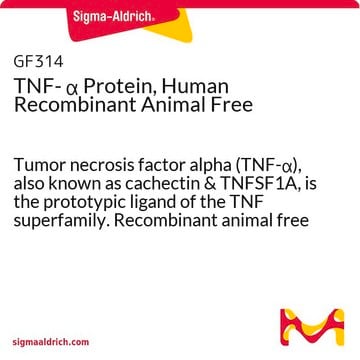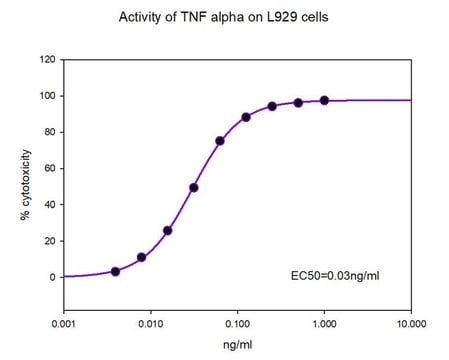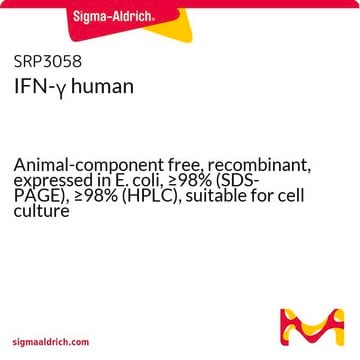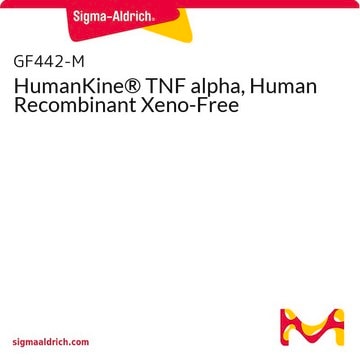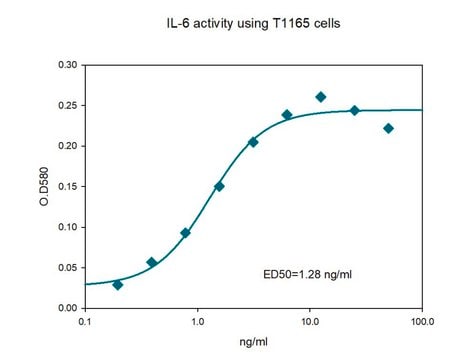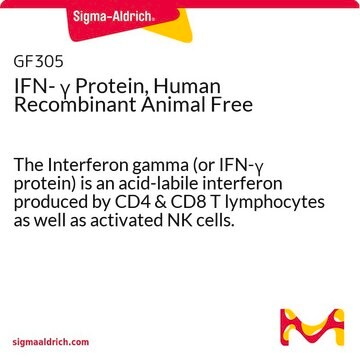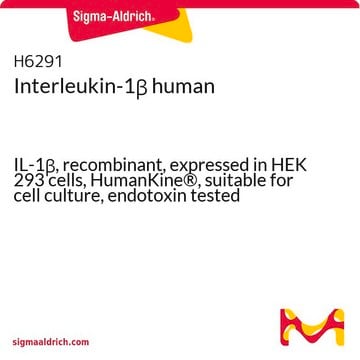654205-M
TNF-α, Human, Recombinant, E. coli
Synonym(s):
TNF-α, Human, Recombinant, E. coli, rhTNF-α, rh-Cachectin, Tumor Necrosis Factor-α
About This Item
Recommended Products
biological source
human
Quality Level
recombinant
expressed in E. coli
Assay
≥95% (SDS-PAGE)
form
lyophilized
manufacturer/tradename
Calbiochem®
storage condition
OK to freeze
impurities
≤0.1 ng/μg Endotoxin (ng/μg TNF-α)
solubility
distilled water: 0.1—1 mg/mL
storage temp.
−70°C
Gene Information
human ... TNF(7124)
General description
Application
Biochem/physiol Actions
Warning
Reconstitution
Other Notes
Tsuchida, H., et al. 1995. J. Immunol. 154, 2403.
Westwick, J.K., et al. 1995. J. Biol. Chem. 270, 22689.
Polunovsky, V.A., et al. 1994. Exp. Cell Res.214, 584.
Koide, M., et al. 1993. FEBS Lett.318, 213.
Vilcek, J., and Lee, T.H. 1991. J. Biol. Chem.266, 7313.
Legal Information
Storage Class Code
12 - Non Combustible Liquids
WGK
WGK 3
Flash Point(F)
Not applicable
Flash Point(C)
Not applicable
Certificates of Analysis (COA)
Search for Certificates of Analysis (COA) by entering the products Lot/Batch Number. Lot and Batch Numbers can be found on a product’s label following the words ‘Lot’ or ‘Batch’.
Already Own This Product?
Find documentation for the products that you have recently purchased in the Document Library.
Customers Also Viewed
Our team of scientists has experience in all areas of research including Life Science, Material Science, Chemical Synthesis, Chromatography, Analytical and many others.
Contact Technical Service